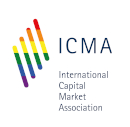The Prospectus and Transparency Directives allow the issuers to use, under certain circumstances, accounting standards other than the EU-endorsed IFRS in their prospectuses and periodic reporting. Regulation EC/1289/2008 and Decision 2008/961/EC provide for the recognition of certain of those accounting standards (those of the US and Japan) as “equivalent” (with interim provisions regarding Canada, China, India and Korea), A conceptually similar process has been initiated in the US where the SEC has proposed to accept IFRS in regulatory filings by non-US issuers.
The Statutory Audit Directive creates the mechanism for introduction of EEA-wide auditing standards and the framework for regulation and supervision of all aspects of the activities of auditors and audit firms. ICMA (and its predecessor IPMA) has been involved in negotiating the directive with the aim of ensuring that the wider interests of the international capital markets are taken into account.
Two issues arising under the Directive continue to be topical: the treatment of non-EEA audit firms and the possible introduction of a limitation of the audit firms' liability for statutory audits.
Related documents:
8 July 2021
ICMA response to BEIS consultation Restoring trust in audit and corporate governance
12 February 2019
ICMA response to UK Financial Reporting Council call for feedback on post implementation review of 2016 Ethical and Auditing Standards changes to implement the Audit Regulation and Directive
21 January 2019
ICMA response to UK Competition and Markets Authority’s statutory audit services market study update paper
12 March 2008
ICMA response re UK implementation of the Statutory Audit Directive
25 February 2008
ICMA SIFMA comments on CESR equivalence consultation
25 September 2007
ICMA comments re File Number S7 13 07
21 August 2007
ICMA SIFMA comments on draft equivalence mechanism regulation
30 May 2007
ICMA Response re UK implementation of Statutory Audit Directive
8 May 2007
Final ICMA Response to CESR Equivalence CP
15 March 2007
ICMA Response to EC CP re Auditors Liability
1 March 2007
ICMA response to consultation on non-EEA auditors

- About ICMA
- Membership
- Market Practice & Regulatory Policy
- Sustainable Finance
- FinTech & Digitalisation
- Education & Training
- Events
- Media & Market Data
Welcome to the International Capital Market Association
For over 50 years ICMA and its members have worked together to promote the development of the international capital and securities markets, pioneering the rules, principles and recommendations which have laid the foundations for their successful operation.
A global community for the capital markets
ICMA has over 620 members located in 70 jurisdictions drawn from both the sell and buy-side of the market.
ICMA engages with its global membership on market practice and regulatory policy issues through its expert forums.
Here are the key sections covering our work programmes, including contact details of ICMA staff responsible for each area.
-
Primary Markets
- ICMA Primary Market Handbook - Home
- Primary Market Committees ‣
-
Primary Market Topics
‣
- Accounting and Auditing
- Benchmark Reform and Transition to Risk-Free Rates
- MiFID II/R in Primary Markets
- Primary Markets Conduct (non-MiFID)
- Electronification
- Primary Markets Technology Mapping Directory
- Dialogue with Investors
- Prospectuses
- PRIIPs KIDs
- Retail Access to Bond Markets
- Market Infrastructure and Asset Servicing
- Market Abuse Regulation (MAR) - Primary Market Aspects
- Periodic Reporting / Continuing Obligations
- Taxation (Primary Markets)
- Other ICMA Primary Market Materials
- Primary Market Products ‣
-
Secondary Markets
- ICMA’s Rules and Recommendations for the Secondary Market ‣
- Secondary Market Practices Committee (SMPC) and related Working Groups ‣
- Central Bank Corporate Bond Purchase Programmes
- Electronic Trading ‣
- “T+1” – the shortening of standard settlement cycles
- Market Transparency ‣
- Market Data ‣
- Market Liquidity ‣
- Secondary Markets Regulation ‣
- Euro Safe Assets
- Archive
-
Repo and Collateral Markets
-
Legal Documentation
‣
- Global Master Repurchase Agreement (GMRA)
- ICMA GMRA Legal Opinions
- ICMA GMRA Clause Library and Taxonomy
- Master Regulatory Reporting Agreement (MRRA)
- Resolution Stays
- ICMA FAQs in relation to the GMRA and market turbulence
- 2011 Global Master Repurchase Agreement (GMRA) Protocol (Revised) Adhering Parties
- Repo and Collateral Council and related groups ‣
- ICMA ERCC Publications ‣
- “T+1” – the shortening of standard settlement cycles
- Market Data ‣
- Regulation ‣
- FinTech ‣
- Repo and Sustainability
- Other Resources ‣
-
Legal Documentation
‣
ICMA serves as Secretariat to the GBP, the SBP, the SBG and the SLBP, providing support while advising on governance and other issues.
ICMA also leads numerous other initiatives in sustainable finance. ICMA is at the forefront of the financial industry’s contribution to the development of sustainable finance and in the dialogue with the regulatory and policy community.
ICMA seeks to mainstream relevant FinTech developments and market electronification through all of its initiatives, activities and fora.
FinTech and market electronification are addressed through ICMA’s various committees, working groups and work streams as well as through bilateral discussions with member firms and technology providers.
Studying with ICMA
ICMA Education has been setting the standard of training excellence in the capital markets for almost five decades with courses covering everything from market fundamentals to latest developments and more.
FIND OUT MORE LINKEDIN DOWNLOAD THE BROCHURE
Already studying?
Accreditations


What’s happening at ICMA?
Find out about our latest announcements




